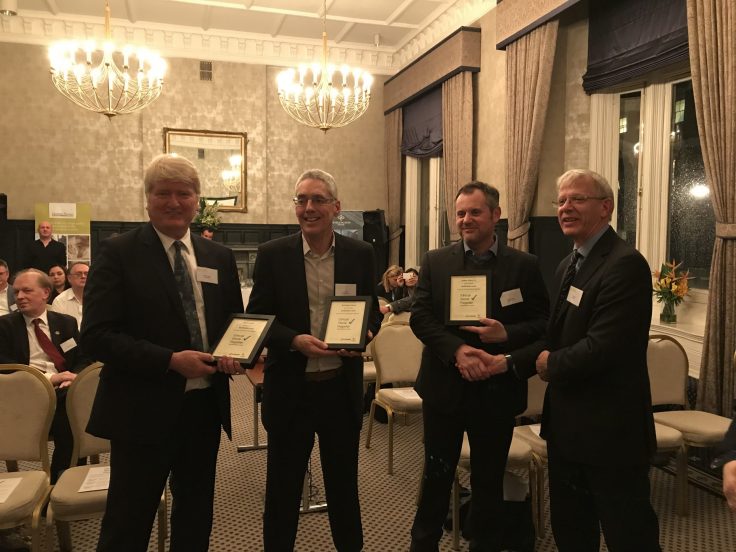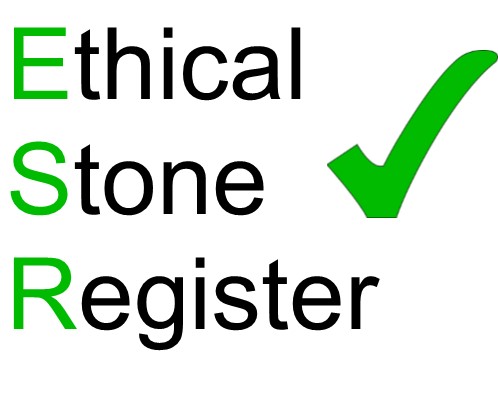

Stone Federation recently launched The Ethical Stone Register, a unique resource created specifically for the natural stone industry, in response to The Modern Slavery Act 2015 and the issues of sourcing materials responsibly.
Following the launch, we have been speaking with the pilot scheme members to find out about their journey on the scheme. These interviews will provide contractors, architects, designers, clients and natural stone firms with an insight into the workings and systems of the Ethical Stone Register.
The third interview is with European natural stone supplier, Amarestone, and Stone Federation’s Chief Executive, Jane Buxey, asked Amarestone’s Managing Director, Steve Turner, about their Ethical Stone Register journey and achieving Verification Level.
Jane Buxey: Congratulations on achieving your Verification Level – what was the motivation for engaging with this scheme?
Steve Turner: Thanks. We were keen to be involved as soon as we heard about the scheme. My interest started many years ago after visiting several quarries and stone factories in France. It seemed normal practice that the quarry environment was carefully managed – many of the quarry sites were invisible from the road – sometimes, trees were planted to hide the site and then, after the stone had been removed, the land was earthed over, replanted and nature returned. The quarries were legally obliged to have insurance guarantees in place to ensure this happened even if the quarry companies ceased trading.
This contrasted with some of my visits to quarries and factories in other countries and made me realise that this was not always the norm. Since then, I have been very keen that Amarestone is associated only with quarries working to these standards.
JB: Have you seen an increased demand from your clients for ethically and responsibly sourced natural stones?
ST: Yes. It is encouraging that we are receiving more and more questions about the sustainability and ethics of using natural stone. Recent media coverage on child and slave labour will also generate more questions. Last year’s case of child labour in the Indian granite quarry and the latest reports of slave labour gangs operating in construction sites under our noses in London have really highlighted the need for better controls.
It has become an issue that must not be ignored and will trigger even greater demand for ethically and responsibly sourced stone.
JB: How will this achievement benefit you as a company that supplies stones from many different locations?
ST: Firstly, it backs up our sustainability and ethical sourcing policy. It’s satisfying that it has been verified independently that we are doing the right thing.
Major players in the construction industry will want to avoid the potential embarrassment of unsavoury practices in their supply chain. The Ethical Stone Register will be the safe source for natural stone and I can foresee that it will become a key resource for the specifier.
Our entry on the register puts Amarestone at the very top of the list of suppliers for French limestone which should help new customers to find us.
JB: What were the greatest challenges in meeting the criteria of the scheme?
ST: We always knew that as an ethically minded business, we were doing the “right thing” but having written proof was still a challenge. It has led us to track and documenting our processes more carefully so that we can monitor our performance against the criteria. The natural stone that we supply to our clients was the obvious starting point but the scheme encouraged us also to think about all the other products that are consumed in the course of our business – even down to the hi-vis jackets and office stationery.
JB: How do you see ethics and responsibility in the sourcing of materials developing over the next five years?
ST: We are looking forward to a time in the near future when natural stone sourced through the Ethical Stone Register is widely recognised as one of the most sustainable and ethical building materials. We hope that the Register will help to make it easier for specifiers and clients to source high quality, sustainable materials and give them a “go to” single point of contact for natural stone.
There are three tiers of membership of the Register, Declaration, Verification and Accreditation and the requirements of each level are explained below.
Declaration – At this tier, companies will have to complete a questionnaire looking at the responsible and ethical sourcing practices of their business. To achieve this level, a company will need to meet 100% of the criteria. The claims and assertions made by a firm at this level will be by means of self-declaration.
Verification – At this tier, the claims made by a company at the Declaration level will be externally verified. The initial verification will be for the company rather than each material they supply, however, they may choose to have some or all of their stones included at Verification level. This will involve an independent auditor assessing the journey of the material and ensuring that the responsible and ethical sourcing criteria are met the whole way along the supply chain. Only verified stones will appear on the Register itself.
Accreditation – At this tier, members will have met the requirements of the Declaration and Verification tiers, and will be further audited for this level. The aim is to have the scheme recognised and to gain credits within schemes such as BREEAM and LEED at this tier.
To find out more information about the Ethical Stone Register, go to www.ethicalstoneregister.co.uk or email info@ethicalstoneregister.co.uk.

